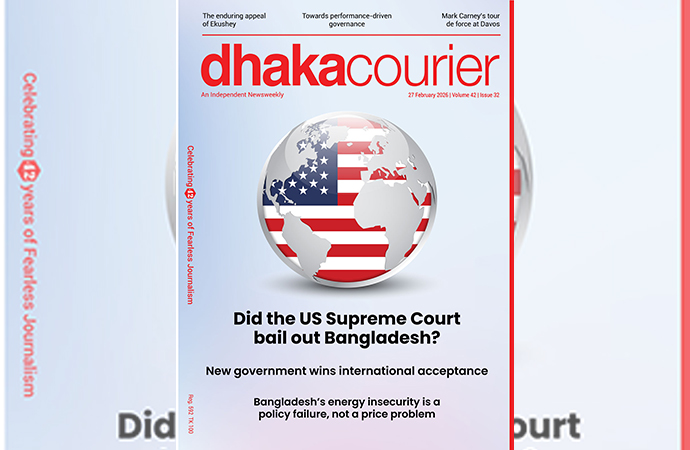World this week

Photo: AP/UNB
The U.S. announced new COVID-19 testing requirements Wednesday for all travellers from China, joining other nations imposing restrictions because of a surge of infections. The increase in cases across China follows the rollback of the nation's strict anti-virus controls. China's "zero COVID" policies had kept the country's infection rate low but fueled public frustration and crushed economic growth. The new U.S. requirements, which start Jan. 5, apply to travellers regardless of their nationality and vaccination status.
In a statement explaining the testing, the U.S. Centers for Disease Control and Prevention cited the surge in infections and what it said was a lack of adequate and transparent information from China, including genomic sequencing on the viral strains circulating in the country. Some scientists are worried the COVID-19 surge in China could unleash a new coronavirus variant on the world that may or may not be similar to the ones circulating now. That's because every infection is another chance for the virus to mutate.
Benjamin Netanyahu's incoming hard-line Israeli government put West Bank settlement expansion at the top of its priority list, vowing to legalise dozens of illegally built outposts and annex the occupied territory as part of its coalition deal with ultranationalist allies. The coalition agreements, released a day before the government is to be sworn into office, also included language endorsing discrimination against LGBTQ people on religious grounds, contentious judicial reforms, as well as generous stipends for ultra-Orthodox men who prefer to study instead of work.
The package laid the groundwork for what is expected to be a stormy beginning for the country's most religious and right-wing government in history, potentially putting it at odds with large parts of the Israeli public, rankling Israel's closest allies and escalating tensions with the Palestinians. The guidelines were led by a commitment to "advance and develop settlement in all parts of the land of Israel," including "Judea and Samaria," the biblical names for the West Bank.
US energy giant ExxonMobil is suing the EU in a bid to force the bloc to scrap its new windfall tax on oil firms. A windfall tax is imposed on firms that benefitted from something they were not responsible for. Energy firms are getting much more money for their oil and gas, partly due to supply concerns as a result of Russia's invasion of Ukraine. But Exxon accuses Brussels of exceeding its legal authority, calling the measure "counter-productive".
ExxonMobil reported a quarterly profit of almost $20 billion (£17.3 billion) in October. In September, European Commission chief Ursula von der Leyen announced the plan for major oil, gas and coal companies to pay a "crisis contribution" on their increased 2022 profits. A 33% tax on this year's profits was announced, which were more than 20% higher than the average for the three previous years.
South Korea's president called for stronger air defences and high-tech stealth drones while the military apologised for failing to shoot down North Korean drones that crossed the border for the first time in five years. South Korea's military scrambled warplanes and attack helicopters on Monday (Dec. 26), but they failed to bring down any of the North Korean drones that flew back home or disappeared from South Korean radars.
It raised serious questions about South Korea's air defence network at a time when tensions remain high over North Korea's torrid run of missile tests this year. On Tuesday, the military again launched fighter jets and attack helicopters after spotting suspicious flight paths at a front-line area. A local county office sent emergency text messages notifying residents of a new batch of North Korean drones. But the military later said it was a flock of birds.

























Leave a Comment
Recent Posts
Bangladesh’s first drought-res ...
In a groundbreaking development for Bangladesh’s agriculture, Ga ...
US and Iran hold another round ...
Iran and the United States were holding another round of indirect talk ...
An early hiccup for the new government?
Japan invites PM Tarique, eyes cooperation with Bang ..
Bangladesh to achieve sustained growth, prosperity u ..
Dhaka indicates ‘forward looking, balanced partnersh ..